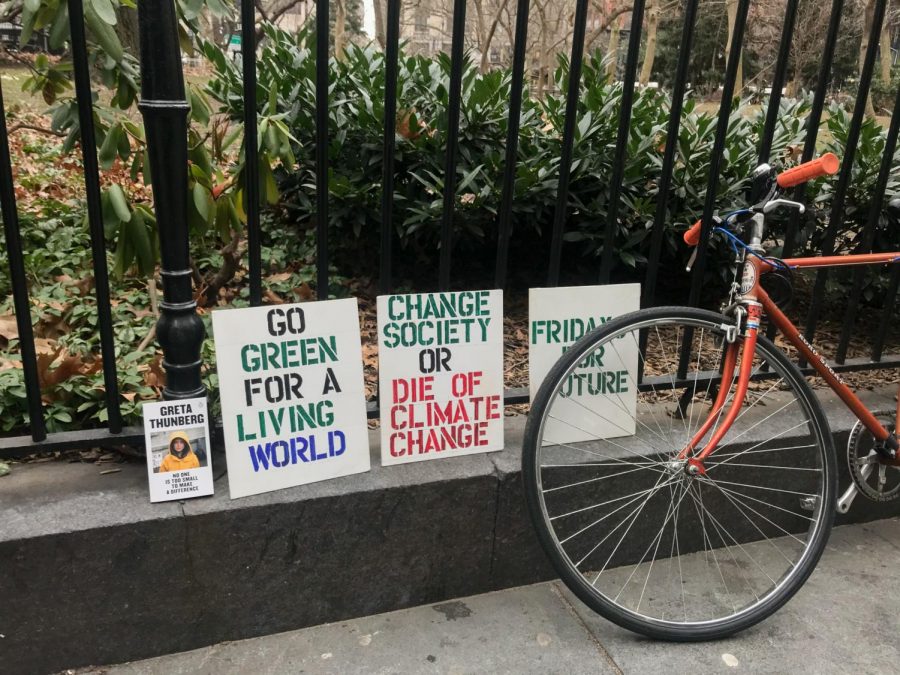Activists Skip School for Climate Justice
February 19, 2020
It’s Friday, Jan. 31, and a group of about 15 people stand outside of New York City Hall. In the cold, foggy weather, they are closely huddled together for the 76th consecutive climate strike: Fridays for Future.
Seventeen-year-old climate activist Greta Thunberg of Sweden has inspired a generation of students to get involved in climate activism by skipping school on Fridays to protest.
Most everyone has seen large dramatic gatherings in the media, but rarely are we shown the dedicated students and activists who spend every week, rain or shine, spreading their message.
Among the students stood two public high school teachers from the Bronx, Bryan and Alicia, who declined to provide their last names.
In response to the characterization of climate activists as “alarmists,” Bryan stated, “I honestly don’t think it is a bad word. We are in a crisis. We have to act now and stop business as usual.” Alicia added, “It’s not even just for the future. The effects are happening right now, mainly in the Global South.”
The students near them had similar sentiments.
“I am 17. Why study for a future that I can’t have? By rejecting the civil duty I have of being a student, I am using my voice in the absence of being able to vote,” Olivia Wohlgemuth, a student at LaGuardia High School, said.
However, even within the climate movement, there are areas where activists disagree, and many call for changes. A recent frustration is the media’s lack of attention towards activists of color and indigenous youth.
“Of course, Greta is the most famous and the reason I am striking today, but the movement preceded her by many decades … It is a misrepresentation of who the crisis is affecting the most,” Wohlgemuth continued.
Another student activist, Alejandro Vasquez, stated that this was his 36th consecutive week striking.
When asked what needs to be changed within the climate movement, he responded, “I feel like getting away from the idea of individual action as the only solution and holding the main perpetrators accountable is what needs to happen.”
He referenced more extreme measures such as going on a strictly plant based diet or living a “zero waste” lifestyle.
Though surely being ultimately beneficial for the environment, Vasquez expressed concern over activists in the community who encourage radical, immediate alteration of lifestyle. He referenced the fact that many people are living in “food deserts,” or urban areas in which fresh, good quality food is not available or affordable.
As a vegetarian, Vasquez sees these changes on the individual level as “just simply not accessible to everyone.” He continued, “We should be focused on holding the billionaires polluting the earth accountable.”
Another attendee of the climate strike was Noé Gauchard, a Fordham Lincoln Center senior in an exchange program from France. Involved in activism before coming to study at Fordham, Gauchard hopes the American climate justice movements can become more consolidated and powerful in order to enact the change activists seek.
“In France, our movements are more consolidated,” he remarked. Gauchard referenced the stark division among Americans — “For example, all the college students have reusable water bottles, but then you go outside and … there are plastic ones everywhere. I think in France the opinions and habits are more even among the people.”
Though these particular students and teachers are not receiving media attention, Fridays for the Future are doing the mundane work of activism: unassuming, but persistent. They sit and hold signs with poignant messages — though the passersby may look away, they will still be there.













